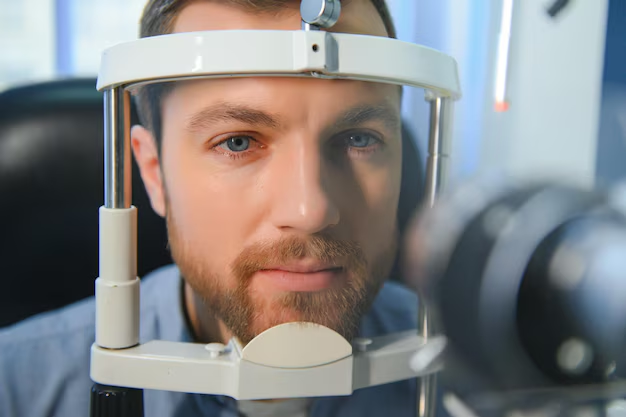Everything You Need to Know About Being Awake During Cataract Surgery
If you're facing cataract surgery, a common question might cross your mind: "Will I be awake during the procedure?" Understanding what to expect can alleviate anxiety and prepare you for a successful experience. In this article, we'll dive into the nuances of cataract surgery, exploring what it entails and what being awake during this procedure really means.
Unveiling Cataract Surgery: The Basics
Cataract surgery is one of the most commonly performed surgeries worldwide. It involves the removal of the eye's cloudy lens, replacing it with a clear artificial lens to restore vision. The success rate is extraordinarily high, with the majority of patients experiencing significant improvement in their vision.
What Is a Cataract?
Cataracts are clouding of the lens in the eye, leading to a decrease in vision. Symptoms might include blurry vision, difficulty with glare, and faded colors. While aging is the most common cause, other factors like eye injuries, diabetes, or prolonged steroid use can contribute as well.
The Surgery: Step by Step
Preparation: Before surgery, patients undergo thorough eye examinations to measure the size and shape of their eyes. This helps in selecting the right type of artificial lens.
The Procedure: The surgeon makes a small incision near the edge of the cornea. Using ultrasonic energy, the clouded lens is broken up and removed. Finally, a new lens is inserted.
Recovery: Post-surgery, vision improves over a few days. Patients will receive instructions on post-operative care, including eyedrop use and activities to avoid.
Awake and Alert: What Does It Mean to Be Conscious During Surgery?
Most cataract surgeries are performed under local anesthesia. This means that while your eye will be numbed, you will likely be awake during the procedure.
Why Stay Awake?
Staying awake ensures that you can follow instructions such as moving your eye or fixing your gaze, contributing to the smooth completion of the surgery. Moreover, recovery from local anesthesia is faster and has fewer risks compared to general anesthesia.
What Will You Experience?
Although awake, you won't see what's happening during surgery. Instead, you'll perceive bright light and vague motions. Here's what else to expect:
- Comfort Measures: Patients often receive mild sedatives to ensure relaxation.
- No Pain: The eye is thoroughly numbed to prevent discomfort.
- Communication: Surgeons may communicate with you to guide the procedure or alleviate any concerns.
Addressing Concerns and Fears
Common Concerns
Being aware during surgery can sound daunting, but understanding what to expect helps calm nerves. Common concerns include the fear of moving during surgery or feeling pain. Rest assured, these scenarios are effectively managed with medications and practitioner guidance.
Practical Tips for Relaxation
- Stay Informed: Clarity about the process diminishes uncertainty.
- Ask Questions: Don’t hesitate to express any concerns to your surgical team ahead of time.
- Mindfulness Techniques: Practice deep breathing or visualization to keep calm.
Exploring Related Topics
How Does Sedation Work?
While you are awake, a mild sedative can still ensure you remain calm. This is particularly helpful for individuals who might be anxious. It won't put you to sleep but will help you feel more relaxed and indifferent to the activities around you.
Aftercare: What to Expect Post-Surgery
The road to recovery post-cataract surgery is crucial. Patients will typically:
- Wear Protective Coverings: An eye patch or shield may be applied.
- Follow Medication Protocols: Use of prescribed eyedrops to prevent infection and control inflammation.
- Monitor for Complications: Watch for signs like excessive pain, vision changes, or increased redness.
Vision for the Future: Benefits and Considerations
Long-Term Effects and Prognosis
- Vision Improvement: Most people experience significant enhancement in their vision, reducing or eliminating the need for glasses.
- Complication Awareness: Rarely, retinal detachment or infection might occur, but prompt medical attention can efficiently handle these issues.
Evaluating Personal Health Goals
When considering cataract surgery, think about your vision goals:
- How important is visual clarity to your daily activities?
- How do you feel about continuing with glasses or contact lenses?
- What are your lifestyle needs concerning vision?
Wrapping Up Your Cataract Surgery Journey
Facing cataract surgery is a significant but manageable step in maintaining eye health. Staying awake during the procedure plays an integral role in achieving successful outcomes. With clear communication and a calm demeanor, most patients find the experience straightforward and rewarding.
By understanding each phase—from the surgical process to post-op expectations—you empower yourself to approach this common surgery with confidence. As always, consulting with your healthcare provider about your specific situation will guide your decisions and ensure peace of mind.
Cataract Surgery Quick Guide 😊
- Are you awake? Yes, you'll be awake but comfortable with local anesthesia.
- Surgery Steps: Incision ➡️ Lens removal ➡️ Artificial lens implant.
- Feelings During Surgery: Bright lights, no pain, vague movement.
- Relaxation Tips: Stay informed, ask questions, breathe deeply.
- Aftercare: Follow medication instructions, wear protective coverings, monitor recovery.
- Vision Improvements: Most regain clear vision; risks are rare but manageable.
Embrace this journey with a positive outlook and trust in modern medical advancements to restore and enhance your vision. 👀✨

Related Articles
- Are Cataracts Curable
- Are Cataracts Genetic
- Are Cataracts Hereditary
- Are Cataracts Nuclear Sclerosis
- Are Cataracts Painful
- Are Ivizia Eye Drops Okay After Cataract Surgery
- Are You Awake For Cataract Surgery
- Are You Put To Sleep For Cataract Surgery
- Are You Sedated For Cataract Surgery
- Can a Cataract Cause Double Vision
